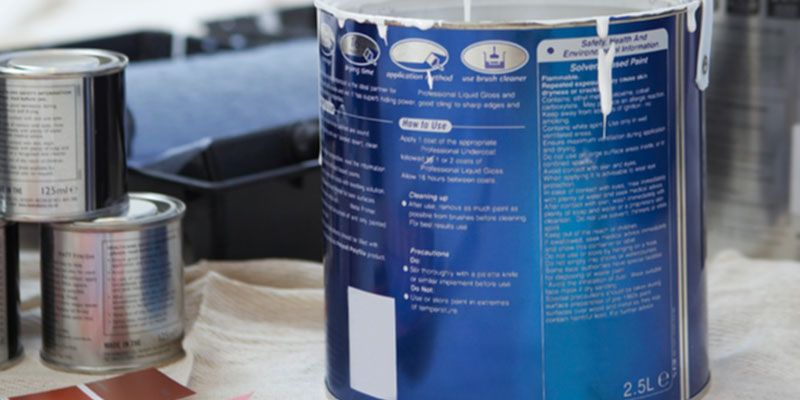Location
Our Washington Location
Our inpatient facility is located in Washington, and will serve Washington state. It will provide a safe & therapeutic environment for both our staff and patients.
- Edmonds
7416 212th St SW,
Edmonds, WA 98026
Paint thinners are just one substance that’s included in the classification of inhalants. Paint thinner abuse statistics tell us that these substances are often chosen by teenagers and even children as a way to get high because they’re so much less expensive than other drugs, and they’re more readily available. Paint thinners produce a very quick high that can quickly become addictive unless their use is stopped almost immediately.
Paint thinner use is often referred to as huffing, and users will typically inhale them through a cloth that is soaked in them, or out of a paper bag. Either way is dangerous, but bagging is even more hazardous because of the fact that oxygen is prevented from getting into the lungs at all.
If you have been participating in paint thinner abuse, you may actually be a paint thinner addict without realizing it. Many people form an addiction to paint thinners, but think that doing so is not possible. Getting the right paint thinner abuse facts can help you understand how the use of this dangerous substance is affecting your health.

The paint thinner abuse definition refers to any use of paint thinners that’s outside of its labeled instructions. If you’re using paint thinners to get high, that is considered to be abuse. People will often confuse paint thinner abuse with paint thinner addiction, but the two are very different. Abuse always comes before addiction, but it should be mentioned that you don’t have to abuse this substance for very long before an addiction can be formed.
If you feel you might be addicted to paint thinners, it can help to learn more about the different types of paint thinner addiction symptoms you might be exhibiting or experiencing. These might include:
Withdrawal symptoms are typical when stopping paint thinners, and many people are surprised to find that they go through withdrawal when they attempt to quit using them. Some common withdrawal symptoms might include:
Usually, withdrawal symptoms start out as very minimal, but they do increase in intensity. This generally leads to people going back to using paint thinners to get some relief.

The longer you use paint thinners, the more at risk you are of suffocation and even death.
It’s clear that if you have a paint thinner addiction, it’s vital for you to get professional help as soon as possible. This is a very dangerous addiction, and here at Northpoint Recovery, we would enjoy being able to help you.
If you would like to learn more about the paint thinner addiction treatment programs at Northpoint Recovery, please contact us today.

Our admissions coordinators are here to help you get started with treatment the right way. They'll verify your health insurance, help set up travel arrangements, and make sure your transition into treatment is smooth and hassle-free.
888.450.2153Contact Us